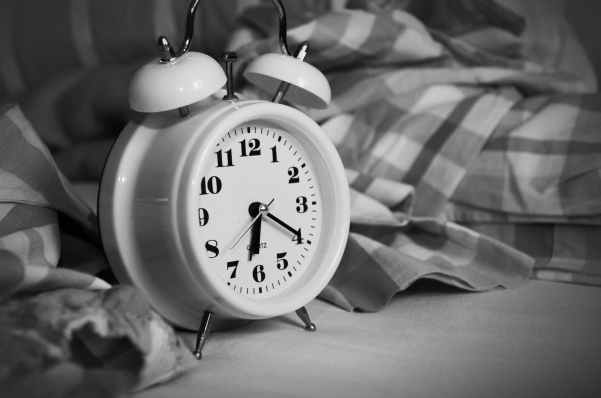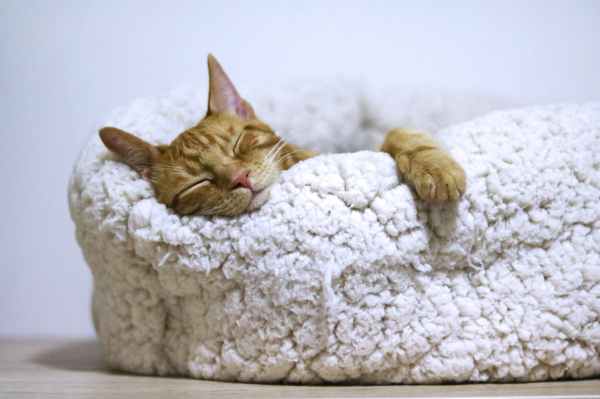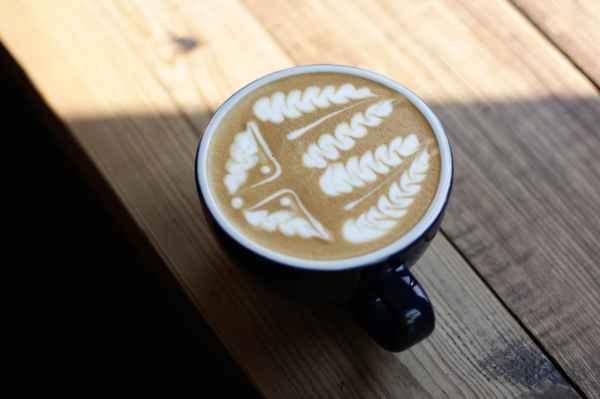Sleep difficulties are a feature of nearly every mental health difficulty, including depression, anxiety, trauma, substance use issues, bipolar disorder and psychosis or schizophrenia. Take Depression for example. Up to 90% of individuals with Depression have sleep difficulties, and two out of every three have significant enough sleep problems to also have a diagnosis of Insomnia.

Worse still, Insomnia does not tend to go away on its own without appropriate treatment. This is because once people start to sleep poorly, they tend to develop ways of thinking and behaving around sleep that make their problems worse over the long run.
Fortunately, there is a treatment out there that can improve your sleep. It’s called Cognitive Behavioural Therapy for Insomnia (CBT-I), which directly targets these unhelpful thoughts and behaviours around sleep.
CBT-I is an effective treatment for insomnia, with many studies showing it to be similar to sleeping pills at improving sleep in the short-term, and much more effective than sleeping pills at improving sleep in the long-term.
Research shows that CBT-I consistently reduces the time taken to get to sleep, decreases the amount of time spent awake during the night, and improves sleep quality and efficiency, with improvements persisting after treatment finishes. This is unlike sleeping pills, which typically lead to sleep difficulties coming back once people with insomnia stop taking them.
Sleeping pills are also not recommended for use beyond 2-4 weeks at a time, because they stop working after a while and people need to take bigger doses over time to get the same effects. Sometimes doctors prescribe them more because they think they will work faster for patients, but even one session of CBT-I has been shown to make a significant difference to one’s sleep at night!

CBT for Insomnia consists of four main components:
- Psychoeducation: This provides people with helpful information around sleep, including homeostatic pressure, circadian rhythms, hyper-arousal and sleep hygiene recommendations. Sleep hygiene means having a comfortable bedroom environment, minimising light exposure before bed, exercising during the day, minimising caffeine and alcohol and doing things to wind down or manage worries before bed.
- Sleep scheduling: This provides people with helpful information on when they should be going to bed at night, the time they should be arising from bed in the morning, and the ideal amount of time that they should be in bed for each night. Stimulus control and sleep restriction are the two main interventions included in sleep scheduling, and both are scientifically supported for improving sleep quality and sleep efficiency if done properly.
- Relaxation techniques: Because hyper-arousal plays a huge role in Insomnia, it is important to help people develop strategies to quieten the mind and calm the body, during the day, before bed and in bed. Relaxation techniques can include imagery training, meditation, biofeedback training, deep and slow breathing and progressive muscle relaxation.
- Cognitive Therapy: This provides people with the skills to challenge their unhelpful or unrealistic beliefs about sleep. A lot of individuals with Insomnia attribute all of their tiredness, mood difficulties or poor performance at work to their sleep difficulties, and this puts too much pressure on them to get a good night’s sleep. It is therefore important to get them to see the other factors that may contribute to how they feel during the day, present them with data that challenges their fears, and help them to develop realistic expectations about their sleep.
In Vanuatu, there is currently only one psychologist located at the Mind Care Unit in Port Vila who is trained in CBT-I. Please come down to receive this effective treatment if you or a family member is struggling with poor sleep. Until then, there are other sleep strategies that you can try:

BEST SLEEP INTERVENTIONS OVERALL
In 2017, Dr Damon Ashworth, Clinical Psychologist and Sleep Researcher, ran 26 two-week experiments on his sleep to determine which interventions were most helpful for him.
He gave each intervention a score out of 100, based on how effective he found the strategy (25 points), how easy it was to apply and use the strategy (25 points), and how much scientific evidence there was that showed that this strategy could improve sleep (50 points).
Here are all of the sleep interventions he tested, ranked from best to worst based on their overall score out of 100:

High Distinction
- Stimulus control = 85/100
- Winding down before sleep = 85/100
- Sleep restriction = 81/100
- Relaxation strategies pre-sleep = 81/100

Distinction
- Meditation = 77/100
- No alcohol = 75/100
- Wearing blue-light blocking glasses before sleep = 75/100
- Listening to music in the evening = 73/100
- Yoga/Pilates = 72/100
- Constructive worry or writing down plans = 71/100

Credit
- Avoiding TV before bed = 69/100
- Melatonin = 68/100
- Aromatherapy = 68/100
- Sauna or hot bath in the evening = 68/100
- Morning sunlight = 65/100
- Reading or listening to audiobooks pre-sleep = 63/100
- Exercise during the day = 61/100

Pass
- No caffeine = 58/100
- Food that helps sleep = 57/100
- Controlling temperature = 57/100
- Massage in the afternoon = 57/100
- Comfort of sleep surface = 56/100
- Sleeping alone = 53/100
- Creativity in the evening = 52/100
Sleep Recommendations
(Stepanski & Wyatt, 2003)
- Decrease time in bed – Sleep efficiency is a better predictor of satisfaction with sleep and daytime mood than total sleep time. So if you only get 7 hours of sleep per night, spend 7.5 hours of time in bed. This will allow for better sleep over time.
- Regular bedtime and arising time – Reducing variability in your sleep can make a huge difference in how long it takes you to get to sleep, how restful a sleep you have, and how refreshed you feel in the morning. Have a set bedtime, and whenever you feel sleepy around this time, go to bed. Then set an alarm so that you can wake up at the same time each day. If you want to sleep in on weekends, allow yourself no more than one hour later than you usually wake up. Following this regardless of how much sleep you get helps to strengthen your circadian rhythms and build up your homeostatic pressure to ensure better sleep over time.
- Exercise – Vigorous exercise prior to bedtime is actually unhelpful for sleep, but expending more energy during the day is likely to lead to better quality sleep at night. The earlier in the day it is done, the greater the effect it will have.
- Less caffeine and alcohol – Minimise these substances where possible, especially within 4 hours of bedtime as they both have significant effects on sleep quality. Alcohol can reduce worries and result in getting to sleep quicker, but results in poorer sleep quality in the second half of the night. Alcohol can also can lead to more snoring due to the loosening of the throat muscles. Caffeine boosts cortisol levels, a.k.a. stress, and results in less deep sleep and more awakenings.
- Do not try to sleep – It is something that has to come on naturally. The harder you try to get to sleep, the less likely you will be able to, as trying activates the autonomic nervous system, which also increase how stressed you feel. The more you allow yourself to relax, the more likely sleep is.
- Do not keep looking at your phone or alarm clock during the night – If your alarm is set, then there is no need to know the time in bed. This will only increase performance anxiety if you look and see that you have not slept for very long. Put it in a draw, cover it with a shirt, or face it the other way.
- Keep naps short – Napping during the day reduces your pressure for sleep by the time you get into bed at night. If you have to nap, keep it less than 30 minutes so that you don’t go into a deep sleep, and do it before 4pm so that sleep pressure can build up again by the time you go to bed that night.
- Engage in relaxing activities before bed – Just like waking up, going to sleep is a transitional process. Don’t expect that your mind will shut off immediately as soon as you get into bed. Whatever it is, do something relaxing as a pre-bed routine. Watch some T.V., read a book, listen to some music, have a hot bath, practice yoga, mindfulness or relaxation techniques. Then maintain that relaxed state in bed and allow sleep to come.
- Use the bedroom only for sleep and sex – This means no reading, eating, internet surfing, game playing, phones, T.V., planning, worrying etc. in bed. Want bed = sleep.
- Make worry list before bed – To prevent your mind from racing in bed, reflect on the day about 2 hours before you want to sleep, write down any worries, concerns or problems you may have, create a to-do-list, or plan for the day ahead. Then if thoughts come up in bed, remind yourself that you have already sorted them out or that they can wait until tomorrow.
- Leave the bed if awake – Sometimes no matter what we try, you may find yourself awake in bed. If you do not fall to sleep within what feels like 20 minutes, get up, go to another room, and do something relaxing until you are sleepy before returning to bed. Over time, this will recondition the bed with sleepiness rather than frustration and allow you to fall asleep quickly. If you are worried that you may never sleep if this was the case, give it a try for a week. It may be the most difficult recommendation to follow initially, but it produces long-lasting results quickly.
Dr Damon Ashworth
Clinical Psychologist

I’m in the process at the moment of designing and facilitating a “Healthy sleep group” psychoeducation group. I have always used CBT-I in the past, but we are experimenting with third wave approaches related to ACT and MIndfulness techniques! This post has come at great time!
LikeLiked by 2 people
Awesome post! I’ve been coming at this issue from the opposite end of causation, learning to appreciate the impact of sleep deprivation due to young children on my cognition and mood. Finally getting some solid undisturbed sleep after 12 months and I feel like I’m slowly coming back to life!
LikeLiked by 2 people
Thank you. It can definitely have a huge impact. Glad that things are picking up again for you!
LikeLiked by 2 people
I do find that the proper amount of sleep is essential when it comes to overall health. When I don’t get a good sleep at night my entire day will be ruined.
LikeLiked by 2 people
Some interesting findings here; I’m surprised caffeine didn’t have a higher impact. I switched to decaf about two months back and I sleep a lot more soundly. I’m also feeling a lot less anxious, so maybe for me it’s a triangle of factors. Great post.
LikeLiked by 3 people
Thank you!
LikeLiked by 1 person
This would come up now,lol…The last three nights I haven’t slept very well.
LikeLiked by 3 people
I’m a supporter of the efficacy of Cognitive-Behavioral Therapy, but it’s important to rule out other causes of sleep disturbance, such as Obstructive Sleep Apnea. If OSA is the underlying problem, that needs to be addressed before CBT can be used to its best advantage.
LikeLiked by 2 people
Of course. Unfortunately there are no sleep physicians in Vanuatu currently, and no treatment available for OSA (CPAP or mandibular advancement splints). It would help a lot!
LikeLiked by 2 people
Definitely, sleep can bring Mental health in a good state.
LikeLiked by 2 people
Fantastic post. So informative. Thanks so much.
LikeLiked by 2 people
Damon, I’ve thought and shared the same idea several weeks ago. Great post. Thanks so much for sharing and teaching others about the impact of sleeping to the mental health.
LikeLiked by 2 people
Thank you!
LikeLiked by 2 people
Like OSA, DSPD may require other, additional interventions. DSPD is a poorly understood circadian rhythm disorder that, sometimes, can be helped with light devices such as the Philips Blu-Light and the Re-Timer. Also, multiple concurrent sleep disorders can be especially difficult.
LikeLiked by 2 people
Very true. I had a pretty bad case of a delayed sleep phase when I was younger. I was worried about how I’d adjust once I started working 9-5 full-time. Luckily my body clock has shifted forward with better sleeping practices including wearing blue light blocking glasses at night and not sleeping in too late in the mornings. I haven’t tried the re-time glasses yet but I’ve heard they can help a lot.
LikeLiked by 1 person
They do. My experience is they can be life changing. And an expert on sleep recently told me that Delayed Sleep Phase Disorder tends to worsen with age and that early intervention is essential. I am near retirement age and only found a provider trained in the area a few years ago. I suspect that it ravages other older adults untreated and either mistaken for “depression” or co-morbid with it. I have not performed a lit review on it, but I bet the co-morbidity rate is through the roof, particularly with older adult. (A possible dissertation topic for someone with a interest in the area.)
LikeLiked by 1 person
Still trying to find the balance of good sleep and too much sleep. I no what too little is 🙂
LikeLiked by 2 people
I completed my graduate thesis on the importance of sleep and all the different aspects of health it impacts. It plays such a huge role! Fast forward to now and i’m experiencing this first hand with a 16 month old!
LikeLiked by 1 person
I’d also recommend Matthew Walker’s Why We Sleep to anyone interested to find out more about the benefits of prioritising sleep in our modern lifestyles – it also has some recommendations for anyone wanting to improve their sleep.
I’ve recently written my thoughts on sleep and CBT-I on my blog: http://www.freudforthought.com if anyone is interested!
LikeLiked by 1 person
Iiked your post amazing keep posting
https://healthyfitness.co.in/healthy-eating-on-a-budgethealthy-food-no1-tips-by-healthyfitness/
LikeLiked by 2 people
Hi there, I love this piece about mental issues! I recently wrote one about mental health that concerns similar issues and would appreciate if you could spare 10 minutes to check it out?
https://angrybird.video.blog/2019/07/18/how-do-you-heal-a-body-when-the-mind-is-under-attack-mental-health-in-the-21st-century/
Let me know what you think, thank you.
LikeLiked by 2 people
Hello there. Thanks for writing this. I am just new here in WordPress (2 weeks actually), and I also wrote about my mental health (or lack thereof). Here it is: https://kloydecaday.wordpress.com/2019/07/27/anxiety-attack-on-a-sacred-time/
Good job for supporting the mental health advocacy through writing. I appreciate it if we follow each other and keep on blogging. Thank you!
LikeLiked by 2 people
I was a night shift ICU nurse for almost 40 years. I have retired and the biggest joy I now have is sleeping at night. People asked me what I would do when I retire and I told them simply, “Sleep at Night!”
I have been retired from healthcare and the highlight has been sleeping and getting rest. Your post is wonderful and so truly on the mark.
LikeLiked by 1 person
Thank you! 40 years is very impressive. I only managed to do night shift for 7 years while studying at university.
LikeLiked by 1 person
I am impressed with your WordPress blog. I have some catch up reading to do on it this afternoon. stay safe!
LikeLiked by 1 person